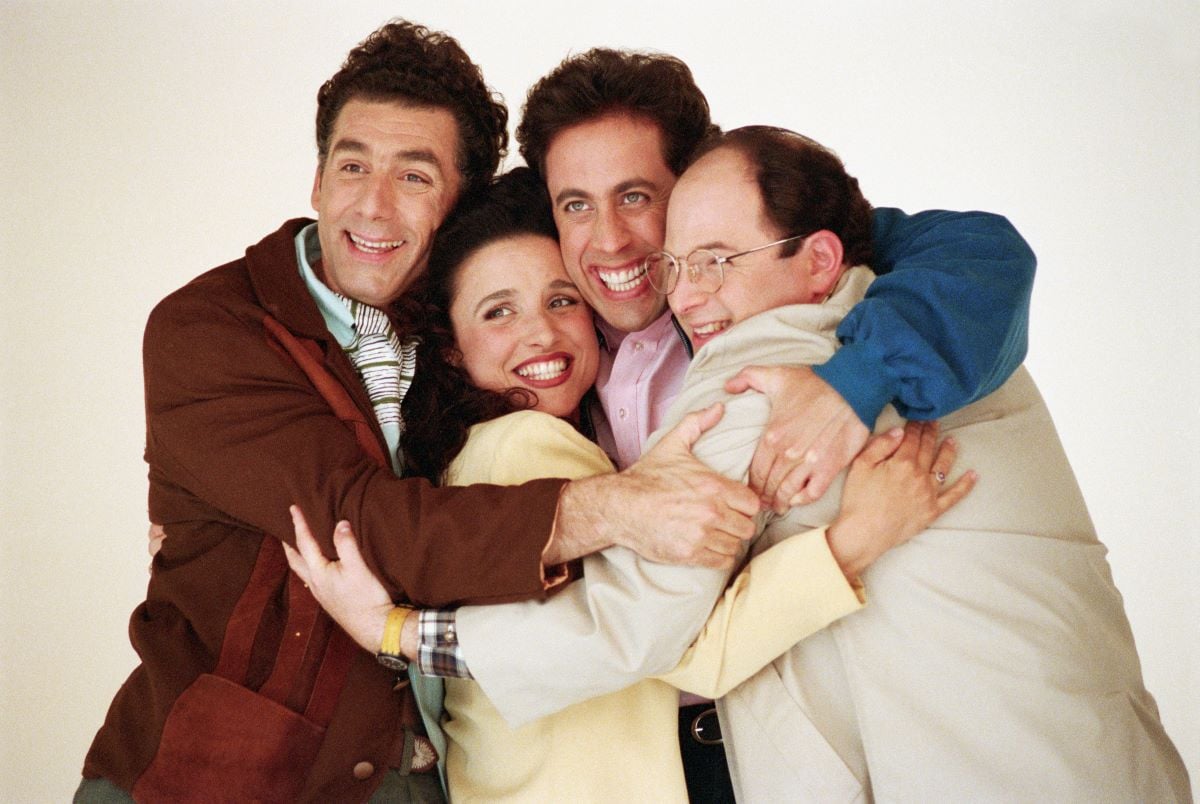‘Seinfeld’: Jason Alexander Said Money Inequality ‘Created a Rift’ and Was ‘Inappropriate’
It’s always awkward to talk about money, especially between co-stars on a hit television series like Seinfeld. It’s true that comedian Jerry Seinfeld was the co-creator and star of the hit NBC sitcom. However, that didn’t mean the rest of the ensemble felt good about him earning billions in royalties while they received a pittance, comparatively speaking.
Actor Jason Alexander (George Costanza) took time to speak with The Globe and Mail discussing how he and fellow costars Julia Louis-Dreyfus (Elaine Benes) and Michael Richards (Cosmo Kramer) had to engage in tough negotiations to get a tiny sliver of the endless money pie known as Seinfeld.
Jerry Seinfeld made more money on royalties than his ‘Seinfeld’ co-stars

Salary discrepancies among cast members are more common than equality. This is due to several different factors, and unless the actors are willing to bargain together, it’s usually inevitable. But the real issue with the Seinfeld cast was the money they made after the show was done.
In the 2004 interview, Alexander explained how he and his costars would be earning a smaller share of the royalties, which was better than getting nothing. “We are currently in negotiations so that we are participants in the DVD and that’s a happy arrangement because we didn’t really want to create this sort of negative impression of our experience,” Alexander said.
This came after the cast was expected to provide extra commentary for the DVD release without being properly compensated. They rebelled against the expectation to do so.
Jason Alexander experienced negative outcomes from being George Costanza
Alexander felt pressured to provide additional content, however he felt no obligation to the network or the show that made him famous. In fact, there were some negatives to being associated with Seinfeld.
“When the DVDs came up, we were being asked to provide new services,” he told Globe and Mail.
“We had no problem with the DVDs being released, but then they said, ‘We want you to perform new services. We want to do interviews and create additional footage and additional material.’ Why would we do that? They said, ‘Because of the legacy of the show.’”
He continued: “Well, the character of George is not a millstone around my neck but I had to turn to my former bosses and say, ‘I’m not invested in the longevity of the show. The longevity of the show actually is a detriment to me right now. It keeps me from getting certain kind of work.”
Ultimately, it all came down to money. Alexander concluded: “You have not made me a participant in the life of this show, therefore I am not inclined to give you these services.’”
That battle caused a rift between Seinfeld and the rest of the cast.
The actor said Seinfeld’s decision to cut them out was ‘inappropriate’
Alexander, Louis-Dreyfus, and Richards negotiated higher salaries for the final season of the show to help compensate for what they’d be losing later. However, that didn’t do much to quell the damage caused by not earning as much in royalties as the titular star.
“I said to Jerry when he made the decision years ago to not let us in, ‘The day will come when you regret this decision, only because it’s going to put us in a position eventually of seemingly tainting the wonderful impression of what this was for the four of us,” Alexander said.
“You have created a rift between you and the three of us, and while we are in no way, shape or form looking for parity with you, you have created a chasm that is also inappropriate.’”
Ultimately, the costars participated in the DVD commentary bonus content. It earned them a bit more of what they felt they were owed for their hard work on Seinfeld.


